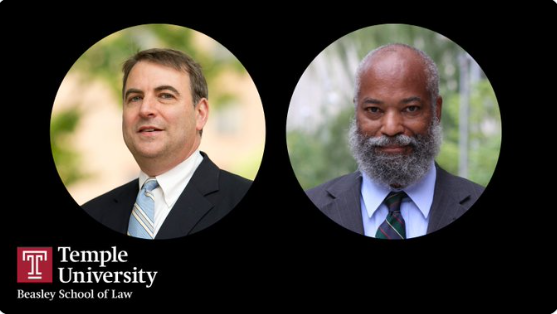by Jon Smollen (Temple Law Professor) and Michael Donnella (Temple Law Professor)
1. What is your background, and what made you decide to become the new leader of the Center?
I have enjoyed a long career as a lawyer and compliance officer in dissimilar industries—telecommunications, health care, and energy, as well as private law practice. I love being a lawyer, and to use a cliché, I developed a passion for the benefits a well-executed compliance & ethics program can provide. Benefits not only for the organization but also its stakeholders—employees, customers, shareholders, and the communities in which it operates.
I relish the chance to make organizations better and few things are more important to me than helping students and lawyers succeed.
When the Center opportunity became available, I was asked to recommend candidates, and I did, but I couldn’t stop envisioning myself in this role with such a unique opportunity to do big things in the field of Compliance & Ethics.
- As director of the CCE, what are your goals? Where do you see the Center in the next several years?
I want to continue the path to excellence that you started with the Center. There may be benefits to expanding the Center’s natural focus on healthcare compliance to include other sectors, as I believe there are core skills and principles which apply almost universally. We want to equip our students with the skills to thrive as this field evolves and distinguish the strengths of Temple from offerings available elsewhere.
I’ve spent most of my career in international business, and I’d like to expand international collaboration both within the Temple community and beyond, so that our students and the profession are equipped to function optimally on a global basis. I’d also like to see what more we might contribute to the state of knowledge through publications.
- With drastic changes in remote work, technological advancements, and rapidly changing legislation, it is fair to say the field of compliance is in flux. What issues and practice areas do you think will rise to the fore in the years to come?
With these changes, more capabilities and information are available digitally, which requires continued vigilance in protecting confidential information and privacy data. Technological advancements will inevitably expose more people to incidental information they don’t need to do their jobs, so they must be educated to protect that information appropriately. Of course, the old standbys: fraud, theft, bribery, harassment, cover-ups, laziness, etc., will evolve along with technological advancement,so compliance technology must keep up with how “traditional” misconduct can now manifest itself.
Technological advancements notwithstanding, organizations cannot simply legislate/codify/systematize their way into lawful and ethical behavior. Changing technologies, laws, and work environments, like all tools, have capabilities and limitations. Culture mattersand culture must be cultivated and monitored along with technological advancements. Critical, analytical, and practical thinking will continue to be in the fore,as will interdisciplinary skills (human cognition, finance, government relations, engineering, etc.) and cultural sensitivity (the ability to communicate effectively across disciplines and cultures). Compliance professionals and lawyers will need to understand their area so well that they can explain it to an intelligent person who is not in their field.
- What programming does the Center for Compliance hope to put forward that students should look out for from the Center this coming year?
We will continue and perhaps expand our experiential learning opportunities through practicums, where students gain real-life work experience and course credit, working in select industries, government, or non-profits organizations. We expect our summer fellowship program to continue with paid compliance positions.. We are looking to have a career panel in the spring. We are also looking at increasing our publications, which may provide more opportunities for students in writing and editing. And I’m sure we will have educational opportunities for students in our various colloquia, executive education, and roundtable events.
Jon Smollen is the outgoing and first Director of Temple’s Center for Compliance and Ethics.
Michael Donnella is a Practice Professor of Law and the incoming Director of Temple’s Center for Compliance and Ethics.
This article originally appeared in The Compliance Monthly feature of Temple10Q, Temple’s Business Law Magazine.

